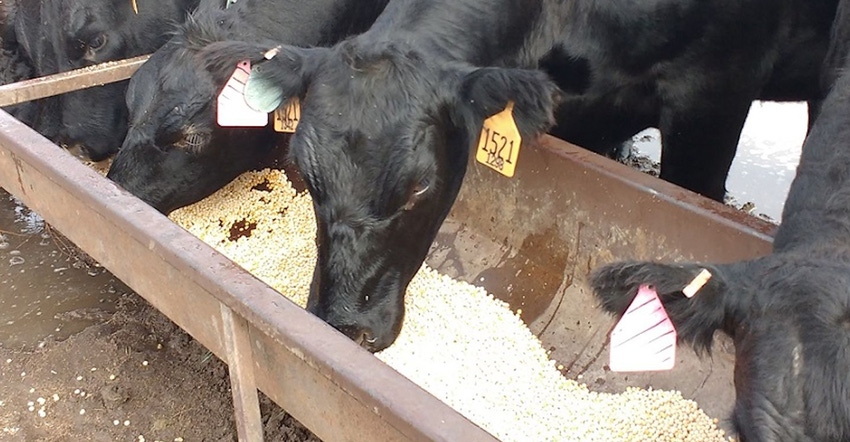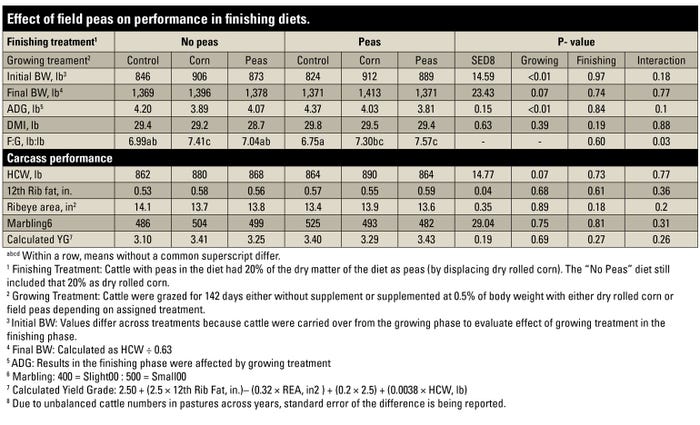May 12, 2017

Field peas are grown in western Nebraska primarily for human consumption and as a component in pet food. However, at times field peas don't meet the necessary specifications for human consumption or traditional markets for them are saturated. Therefore, evaluating how field peas can be used in beef cattle diets is useful for both field pea growers and cattle producers.
Recent research at the University of Nebraska-Lincoln evaluated field peas as a supplement to growing calves grazing crested wheatgrass pasture. The gains of cattle supplemented field peas were compared to those who received no supplement and to those supplemented with cracked corn.
The cracked corn supplement had urea added through a distillers-soluble carrier to ensure field peas and corn were equal in rumen degradable protein.
After the grazing study, cattle from each treatment were finished on diets based on dry rolled corn, which contained either no field peas or 20% field peas on a dry matter basis.
The results of the grazing phase were that the cattle receiving the corn supplement gained the most while grazing crested wheatgrass, followed by those receiving field peas, with the cattle receiving no supplement gaining the least.

Cattle receiving no supplement on pasture exhibited compensatory gain in the feedlot, but had a tendency to be lighter than pasture-supplemented cattle at harvest. There were no impacts from including field peas in the finishing diet on finishing performance or carcass characteristics.

Field peas are an acceptable supplement for pasture cattle when appropriately priced. Field peas can replace corn at 20% of the dry matter without negative effects on performance or carcass characteristics. More detailed information about this study is online.
Jenkins is a Nebraska Extension range management cow/calf specialist at the Panhandle Research and Extension Center. Research was conducted by Jenkins; Jim MacDonald, UNL associate professor of ruminant nutrition; Matt Luebbe, Extension feedlot nutrition and management specialist; and Hannah Greenwell, former graduate student in UNL's Animal Sciences Department. This report comes from UNL BeefWatch.
About the Author(s)
You May Also Like




